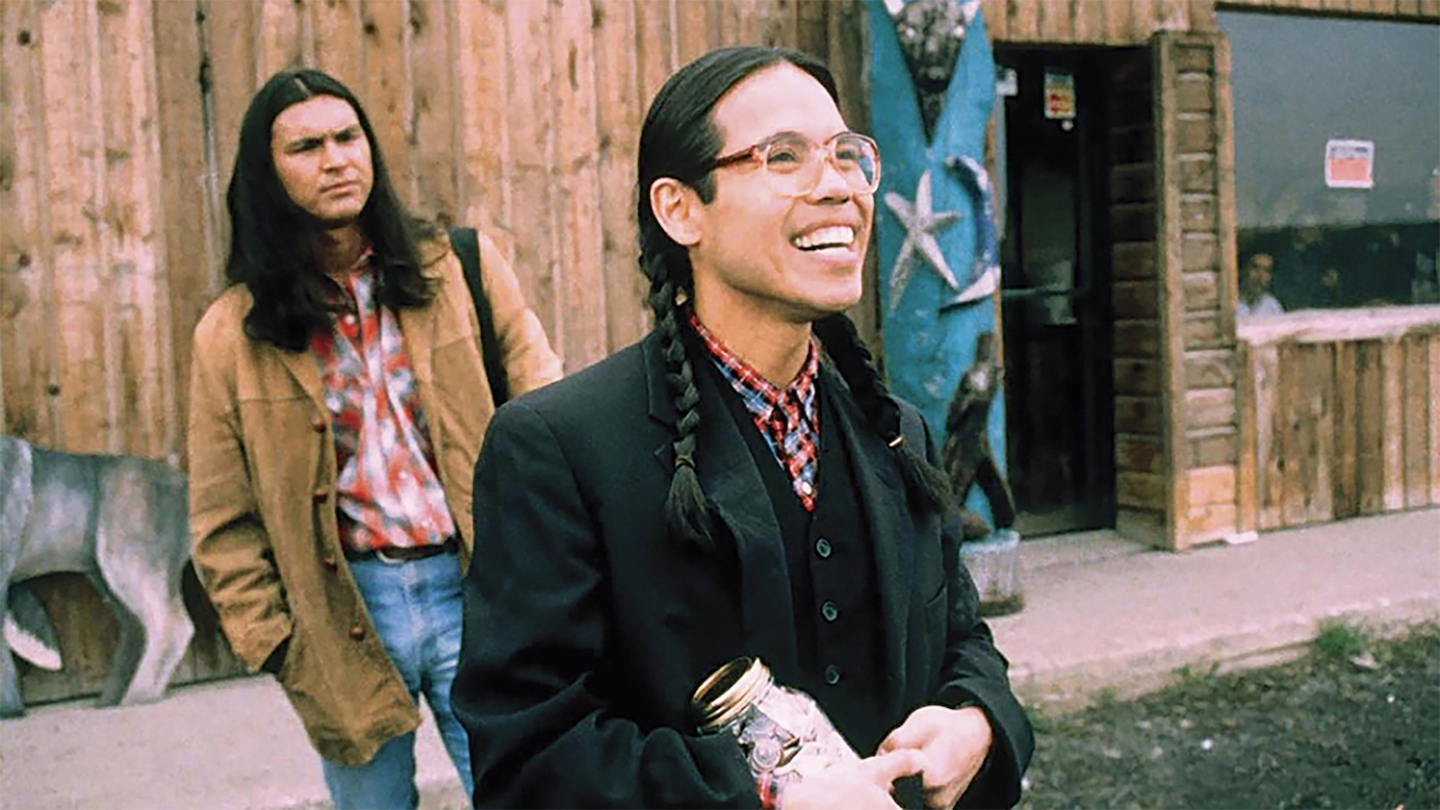To Hollywood's shame, it wasn’t until 1998 that a major feature made by Native American filmmakers was released. It was this charming indie gem that belatedly broke that new ground: based on author Sherman Alexie’s The Lone Ranger and Tonto Fistfight in Heaven, Smoke Signals retains the irreverent humor hinted at in its source material’s title while also being a genuinely heartfelt drama. Set across two cleverly interweaving timelines, it follows the fraught relationship between Victor and Thomas, two young men living on Idaho’s Coeur d’Alene Reservation who are forever linked by tragedy: as a baby, Thomas was saved from the house fire that killed his parents by Victor’s father Arnold (a great Gary Farmer), who soon spiraled into alcoholism and abandoned his young son. When Arnold dies suddenly, then, the duo embark on a perspective-changing road trip to collect his ashes.
Thomas’ nerdy earnestness and happy-go-lucky personality have always gotten on the nerves of the stoic Victor — who’s eaten up by resentment at his father for leaving — but the trip brings the disparate duo together. Though the movie honors their meaningful journey with a serious dramatic focus, it’s also shot through with sharp humor satirizing clichés about Native American people — a tonal complexity that makes it uncommonly accomplished, even without the added value of its all-too-rare perspective.







